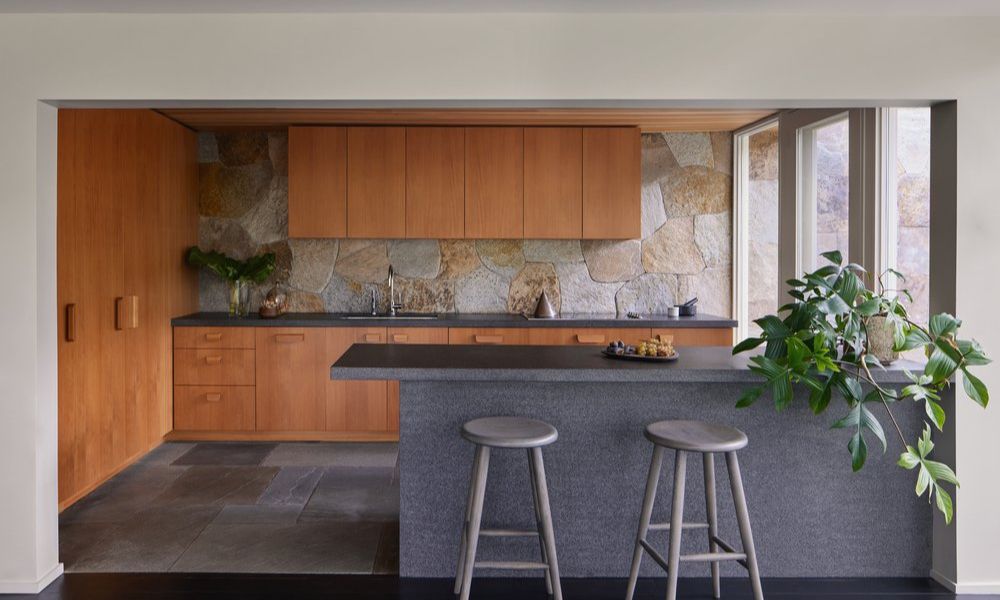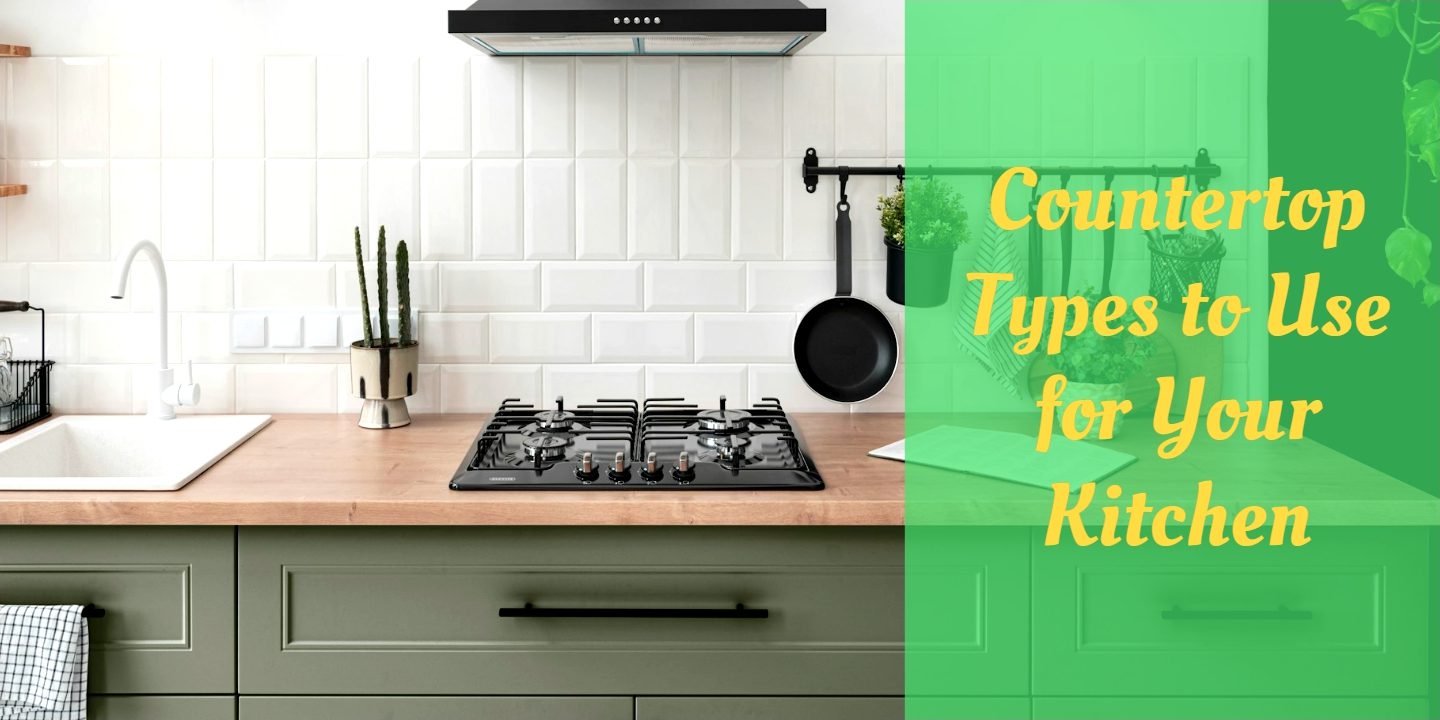As you’re starting a kitchen renovation, pinking the right countertops is an essential step to ensuring a space that’s both stylish and functional.
That’s why we’re gonna dive into 5 countertop types to use for your kitchen. We’ll cover the maintenance of each countertop, and highlight their pros, cons, and best-suited applications.
Each material offers distinct advantages and drawbacks, so consider your budget, lifestyle, and desired aesthetic to determine which option best suits your needs. Let’s get started!
Laminate
Laminate countertops, often referred to as Formica or HPL, are a popular option due to their affordability, durability, and ease of maintenance.
Generally, they are made from a few layers of paper and resin, which are pressed and heated to form a strong, waterproof surface. Laminate countertops offer a wide range of colors, patterns, and finishes to finishes matching match any decor.
Moreover, these materials exhibit commendable resistance to scratches and stains, further bolstered by their resilience to impacts. This combination of qualities makes them well-suited for areas subjected to heavy foot traffic.
Pros:
- Affordable and budget-friendly
- A diverse array of hues, patterns, and textures
- Simple to clean and maintain, made to withstand the rigors of everyday use
- Relatively invulnerable to scrapes and stains
- Tough and durable, great for areas with heavy foot traffic
Cons:
- Susceptible to heat damage from hot pots and pans
- May not be as resilient as natural stone or solid surface ones
- Susceptible to damage if not handled with care
- Heat tolerance is below average compared to other materials
Best for:
- Cost-conscious people seeking aesthetically pleasing and long-lasting options
- Kitchens with high traffic that require easy-to-clean surfaces
- Kitchens with young kids or pets who may be prone to accidents
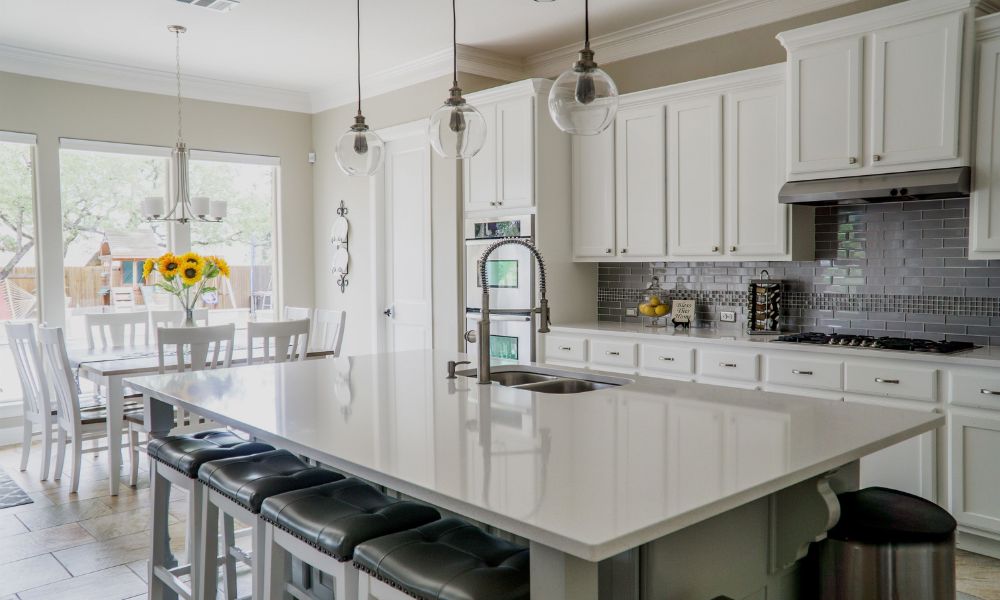
You may also like: 7 Best Countertop Microwave Reviews
Granite
Their graceful lines and luxurious finishes elevate any kitchen to a realm of elegance and refinement. Nature’s artistry shines through in these minerals’ vibrant hues, intricate patterns, and varied textures.
Granite’s intrinsic strength, ability to withstand searing heat, and resilience to stains solidify its reputation as a long-lasting investment. They’re also naturally beautiful and come in a vast scope of colors, patterns, and textures.
Also, these can withstand the rigors of everyday life, ensuring a long-lasting investment.
Pros:
- Exceptionally tough and impervious to scratches, stains, and heat
- Natural and versatile
- Can handle the demands of everyday use with ease
- Boosts the marketability and resale potential of your house
Cons:
- More pricey than others
- Expert installation is recommended for optimal sealing and durability
- Can be heavy and difficult to transport
- Vulnerable to erosion from acidic substances, such as lemon juice and vinegar
Best for:
- Those who want a timeless countertop
- Kitchens that embrace a sleek or rustic style
- Homeowners who plan to stay in their home for the long term
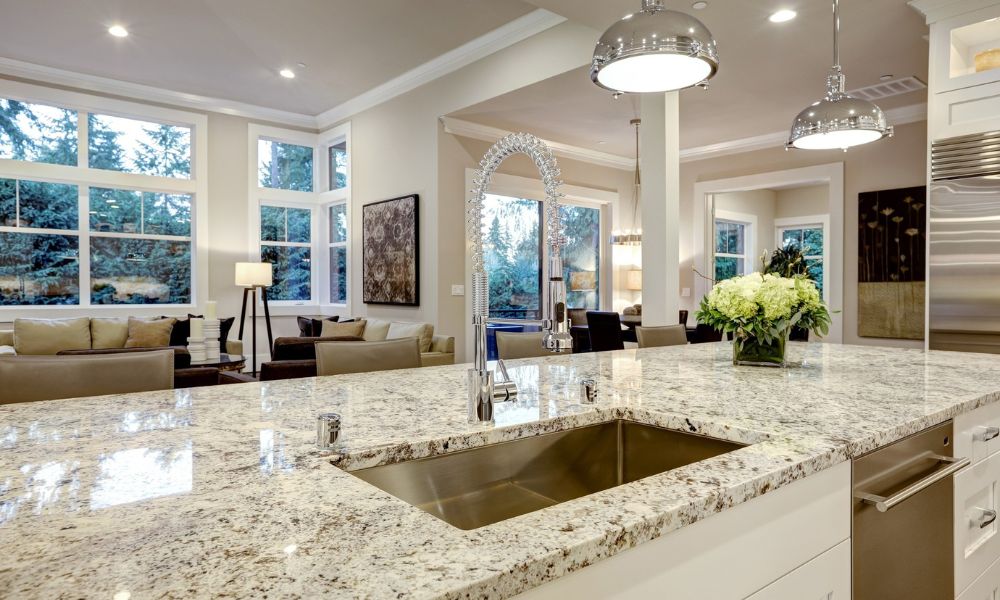
Quartz
They are popular because they are beautiful, durable, and easy to maintain. Made so that a surface that is impermeable.
Besides, these are highly durable and resistant to diverse factors. They’re also made for a uniform look and minimal maintenance.
Encompass a diverse array of aesthetics, featuring colors and imprints that replicate the essence of natural stone.
Pros:
- Built to last with exceptional resistance to scratches, stains, and heat.
- Easy maintenance
- Low-maintenance in long-term
- Replicate the look f natural stone
Cons:
- More expensive than laminate
- Can be susceptible to staining from certain types of dyes or pigments
- May require special sealants to maintain its shine and resistance
- Can emit a low level of formaldehyde, although this is considered safe
Best for:
- Those who want a durable and low-maintenance countertop material
- People who prefer a uniform appearance and minimal maintenance
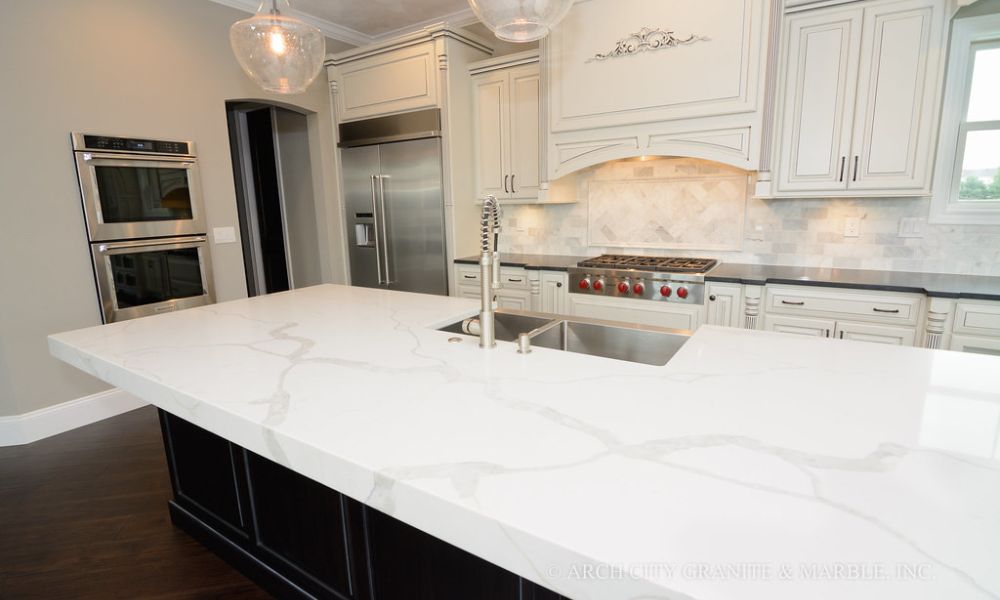
Check also: 7 Best Kitchen Sinks Reviews
Butcher Block
Butcher block countertops offer a touch of rustic charm and warmth to your kitchen. Generally, they’re made from solid wood, often maple or oak, and are known for their natural beauty, durability, and ability to enhance natural wood grain patterns.
If you’re into all things natural and organic, these are your top choice. They’re also long-lasting and can resist daily usage. Their original splendor can be resurrected through meticulous sanding and refinishing.
Also, they can improve the air quality in your kitchen by releasing natural oils.
Pros:
- Look natural, add warmth to a space
- Resilient and capable of enduring the rigors of daily use
- Capable of undergoing sanding and refinishing processes to reinstate its initial look
- Enhances the air quality in your kitchen by releasing natural oils
Cons:
- Needs consistent upkeep and sealing to guard against moisture and stains
- Susceptible to heat damage from hot pots and pans
- Can stain easily from acidic foods or liquids
- Susceptible to scratches and watermarks
Best for:
- Those seeking an environmentally friendly and natural countertop option for their homes
- Kitchens with a rustic or farmhouse aesthetic
- Those who enjoy DIY projects and are willing to maintain their countertops
- Give a distinctive and modern option for kitchens aiming for an industrial aesthetic
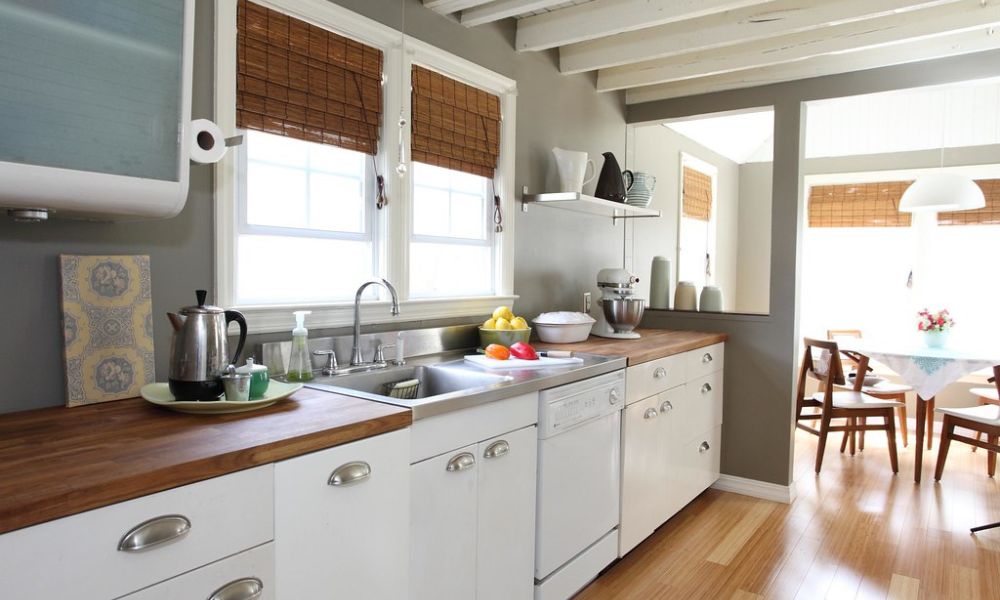
You may also check: What Is a Pre-Rinse Kitchen Faucet? Do You Really Need One?
Concrete
Constructed from a blend of cement, sand, and water, these countertops can be poured into molds for custom look. Plus, they can be polished, honed, or left with a raw, unfinished look. These are unique and customizable, and they can complement modern decor.
They’re also durable and resistant to scratches, stains, and heat. Additionally, they can be repaired with epoxy or patching compounds.
Pros:
- Distinctive and adaptable appearance that enhances modern decor
- Sturdy and able to withstand scratches, stains, and heat
- Can be repaired with epoxy or patching compounds
- Brings a distinctive touch of character and personality to your kitchen
Cons:
- Needs expert installation for correct curing and sealing
- May crack or chip if not adequately cared for
- Can be cold to the touch, especially in colder climates
- Needs consistent upkeep to preserve its appearance
Best for:
- Those seeking unconventional countertop material for their homes
- Kitchens with a modern or industrial aesthetic
- Homeowners who are willing to put in the time and effort to maintain their countertops
